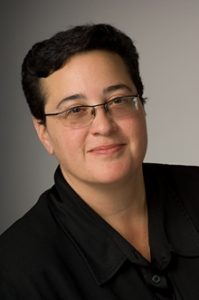African and African Heritage Jews:
Western Academic Perspectives
MARLA BRETTSCHNEIDER. MARCH 2011
 Since the first large-scale aliyah of Ethiopian Jews to Israel about 30 years ago, popular Jewish interest in AfricanJewish communities has blossomed. Western Jewish academic research on African and African heritage Jewish and Jewishly related communities is a rapidly growing area of study. The field offers tremendous possibilities for research
Since the first large-scale aliyah of Ethiopian Jews to Israel about 30 years ago, popular Jewish interest in AfricanJewish communities has blossomed. Western Jewish academic research on African and African heritage Jewish and Jewishly related communities is a rapidly growing area of study. The field offers tremendous possibilities for research
into questions of Jewish identity. All too often, however, we find the academic lens reflecting the observer, rather than the phenomenon observed. The Jewish African Diaspora is as large as its moniker implies, with communities crossing a wide range of life experience and geographic locales. In sub-Saharan Africa alone, Jewishly identified and related communities include the Abayudaya of Uganda, the Igbo in Nigeria, the Sefwi Wiawso in Ghana, the Lemba in Southern Africa, and the Beta Israel in Ethiopia. In the
United States, communities of interest to scholars include various groups of Hebrew Israelites, the Commandment Keepers in New York City, the Beth Shalom B’nai Zaken Ethiopian Hebrew Congregation of Chicago, and Debra Bowen’s Temple Beth El of Philadelphia. With such diversity, the range of questions academics could ask is broad: How has Jewish practice in a given community adopted aspects of local culture, and, likewise, how has the local culture been changed by the community’s Jewish practices? How does local language impact liturgy? How has a community’s identity grown and shifted, given its geographical context in history, and what new insights does that
offer for understanding other, more commonly studied, communities? What kinds of stories do communities tell about their Jewish heritage ? And how are the stories and practices of these communities similar or not to those of other such communities, and why? Yet, to date, asking and exploring the above questions does not reflect the trends in this growing academic field. Instead, Western academics tend to act as gatekeepers, primarily asking: Is “x” group (“truly”) Jewish? That this is usually the first question asked also impacts the arc of the broader research agenda that follows as well as methods employed. Community members are asked to prove their Jewishness while explaining how they came to live in regions outside the areas that mainstream Jews generally associate with Jewish history. The stories of origin given by African and African heritage communities are expected to fit into existing narratives of Jewish exile, and to embody the tropes of Jewish history, migration patterns, and ritual observance common to that of larger, more established Jewish communities. By framing our questions under the rubric
of “being like us,” we are perpetuating a belief that our Judaism is the “right” kind. It puts into play a power differential not dissimilar from other race and gender dynamics. The kindest way to account for the current approach is that most contemporary Jewish studies scholars lack a sense of self-consciousness about our own status as Westerners and do not see how our methodologies tend to privilege truth claims that make sense only in “our” kinds of Jewish communities. In the process, we forfeit a deeper understanding of our global Jewish heritage. As scholars, we need to be aware that our
work has direct policy implications. The insistence on questioning whether these communities are truly Jewish raises policy issues such as: Can members of these communities claim their right, as Jews, to Israeli citizenship? Is Israel (and the Jewish community writ large) responsible for support they may request? How might accepting these communities as “truly” Jewish impact the delicate balance of Israeli political
relations with the often unstable governments in their home countries? We must be aware of our own place within the organized Jewish community, and how the kinds of questions we ask and the methods we utilize in our research may impact our understanding of the emergent communities we study. Most of all, it is incumbent upon Jewish scholars to explore the assumptions we bring to such studies, for the benefit of the communities we research, but also for our understanding of ourselves.
————————————
Marla Brettschneider, PhD, is a
professor of political philosophy
and feminist theory at the
University of New Hampshire.
She has a joint appointment in
the departments of political
science and women’s studies,
where she serves as coordinator.
Her most recent book is
The Family Flamboyant: Race
Politics, Queer Families,
Jewish Lives.
